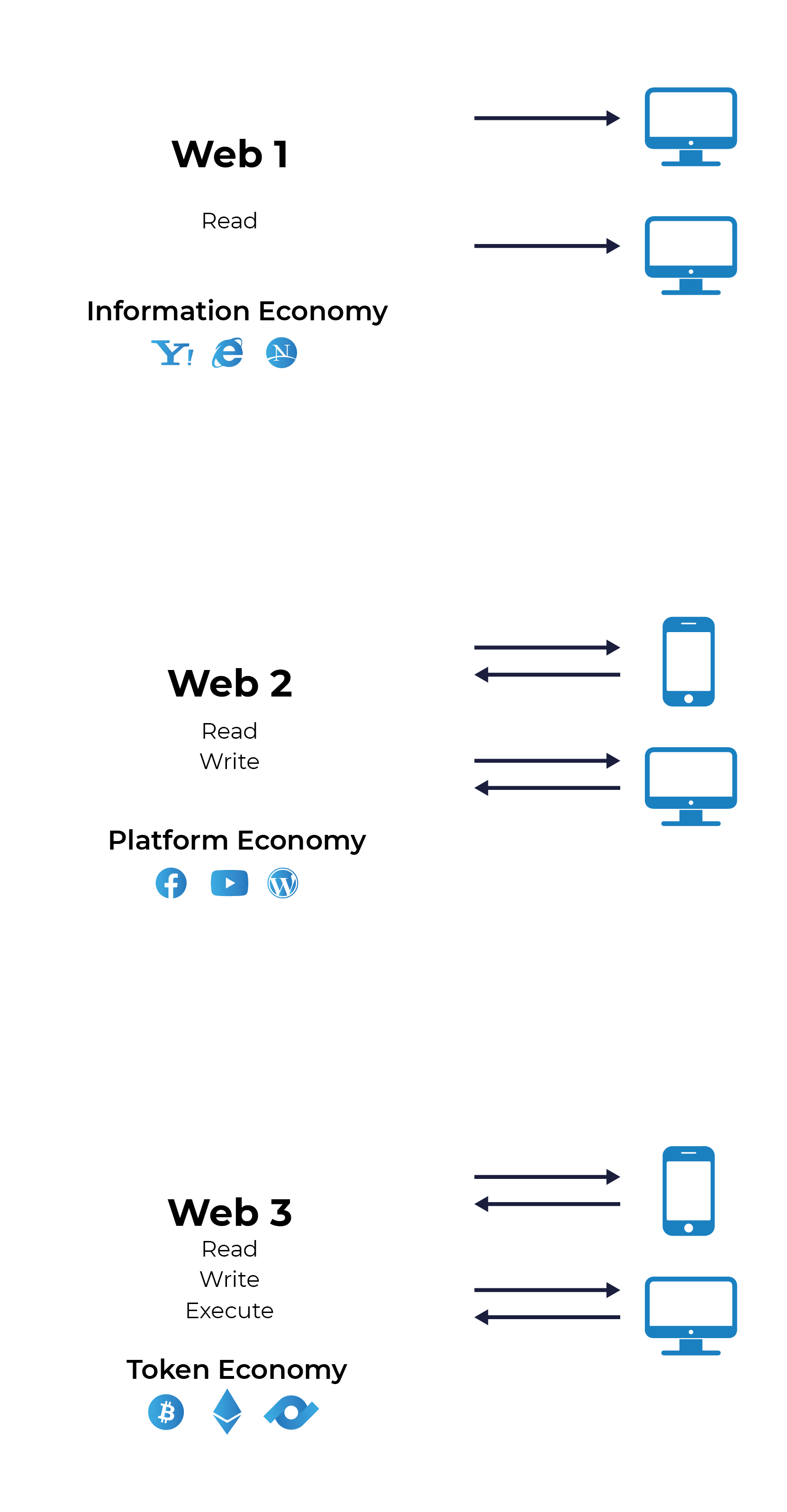Web2 refers to the version of the internet most of us know today. An internet dominated by companies that provide services in exchange for data. Web3, in the context of Unova, refers to decentralized apps that run on the blockchain. Instead of controlling your data, we provide the infrastructure that allows each company to keep control over their own data and with who they wish to share it. In simple terms, we do not host your data on our server. You do.
DIFFERENCE
Web2 vs Web3
With Web3, people, machines & businesses can trade value, information & work with global counterparties they don’t know or yet explicitly trust, without an intermediary.

Keep control of your data
Practical comparison
Web2
Web3
All supply chain data would be hosted on our servers for us to manage
Each organization stores and controls its data and distributes it to the other stakeholders for them to store a copy
Unova would provide an API to read and write from our database
Unova provides a NOP (node onboarding package), allowing you to install nodes containing databases, applications, and APIs. You create and read from your own node.
The code runs on a centralized server where Unova can make any changes
The code runs on a network of nodes with smart contracts that define the rules of the network and exactly what happens, and each organization can trust in the system to do what it’s supposed to
Our server could go down, creating tremendous business risk for global supply chains once companies rely on the system
Web3 servers can’t go down – they use Unova, a decentralized network of computers, as their backend
Single point of failure: malicious actors may be able to take down the network by targeting the central authority.
No single point of failure: network can still function even if a large proportion of participants are attacked/taken out.
One company (Unova) controls which applications are available
Any participant in the network can launch smart contracts and create new applications that run on the network, fitting their specific needs

In a world with growing concerns about data and supply chains crossing international borders, it is important to build a basis on which companies and government agencies can build without trying to convince these organizations to trust one company.

Cross border potential
A Chinese company and a Russian company may be part of a European supply chain, but it is unlikely each one of these companies will be comfortable with sending their data to one central organization, in this case, Unova.
Instead, we have built an infrastructure that allows each one of these organizations to keep complete control and decide who gets their data. In addition, going towards the future, it may be that each organization wishes to create and send different kinds of data or even build different applications which can still leverage the benefits of the network; therefore, providing infrastructure and not only a web application is important.
Since supply chains cover a global network of goods transfer it is only logical that there is also an IT network that supports this.
